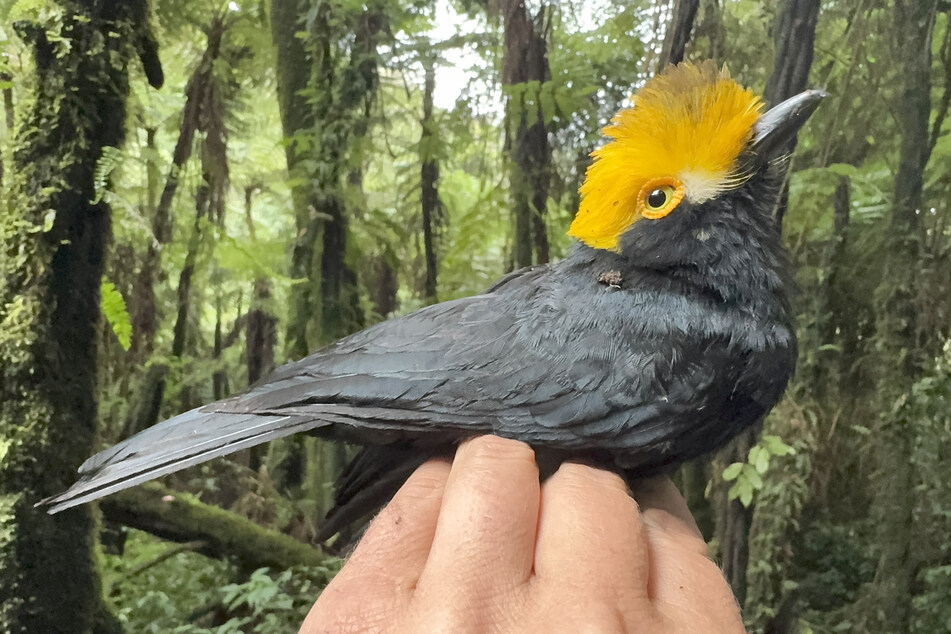Texas researchers rediscover "lost bird" in the Congo
Democratic Republic of the Congo - A bird long considered lost was rediscovered by a Texas research team in the mountains of the Congo!

The scientists were trekking through Itombwe Massif, a mountain range in the Democratic Republic of the Congo, when they caught sight of the bird with a distinctive yellow "helmet."
The American Bird Conservancy has the Yellow-crested Helmetshrike, or Prionops alberti, listed as a "lost bird" because the animal hasn't been seen in nearly two decades.
Scientists from the University of Texas at El Paso recently caught sight of the lost bird and took pics to document the rare find!
Per the University's press release, the team's pic of the helmetshrikes has been reviewed and confirmed.
In other words, the lost bird officially still exists!
"It was a mind-blowing experience to come across these birds. We knew they might be possible here, but I was not prepared for how spectacular and unique they would appear in life," said UTEP ornithologist Michael Harvey, who led the expedition.
Researchers stumbled upon the Yellow-crested Helmetshrike during a six-week expedition to the Itombwe Massif, a mountain range in the eastern part of the Democratic Republic of the Congo.
Scientists also rediscover long-lost frog on Congo expedition
The researchers trekked 75 miles through cloud forests on the mountain slopes to study birds, amphibians, and reptiles.
They observed 18 Helmetshrike birds at three different locations during the expedition.
According to Harvey, the birds live in an area that, due to war, was largely inaccessible until recently.
Researchers also rediscovered the Red-bellied Squeaker Frog, which hadn't been seen since the 1950s, per the university's press release.
Cover photo: Screenshot/X/@UTEP
